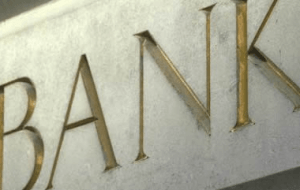Banks clean-up exercise, tough yet the right thing to do – President
 President Nana Addo Dankwa Akufo-Addo on Thursday said the clean-up exercise in the banking sector was a difficult task, but the right thing to do at the time to stabilise the financial sector.
President Nana Addo Dankwa Akufo-Addo on Thursday said the clean-up exercise in the banking sector was a difficult task, but the right thing to do at the time to stabilise the financial sector.
He said the weak banking sector that his government inherited from the opposition National Democratic Congress (NDC) was now vibrant after the Securities and Exchange Commission (SEC) and the Bank of Ghana embarked on a financial clean-up exercise.
President Akufo-Addo giving this year’s State of the Nation Address in Parliament reassured Ghanaians who have their monies locked up in any of the 420 collapsed institutions that their monies would be refunded in full.
In August 2017, the financial sector clean-up led to the collapse of nine universal banks, 347 microfinance companies, 39 microcredit companies or money lenders, 15 savings and loans companies, eight finance housing companies, and two non-bank financial institutions over issues of maintaining the minimum capital requirement.
Some banks, including;, Construction Bank, Beige Bank, Royal Bank, uniBank and Sovereign Bank had their licenses revoked, while some were fortunate to be merged to operate as the Consolidated Bank with Government of Ghana having 100 per cent shares in it.
Last year, President Akufo-Addo granted an executive approval for the expenditure of GHS15.6 billion to save the funds of depositors, who had their monies locked up in the collapsed financial institutions two years ago.
A news release from the Presidency pointed out that the money released was expected to improve the liquidity of the financial sector.
The President’s address is in accordance with Article 67 of the 1992 Constitution of the Republic of Ghana and the Standing Orders of the Parliament of Ghana.
Article 67 of the 1992 Constitution states: “The President shall, at the beginning of each session of Parliament and before dissolution of Parliament, deliver a message on the State of the Nation.
The address updated the public on the government’s progress and outline plans for the next financial year and covered, in broad terms, areas such as the economy, education, health, security and infrastructure.
Source: GNA
